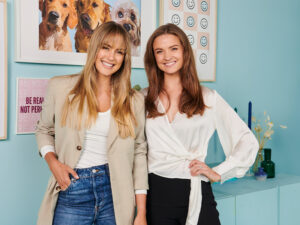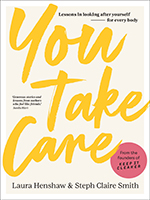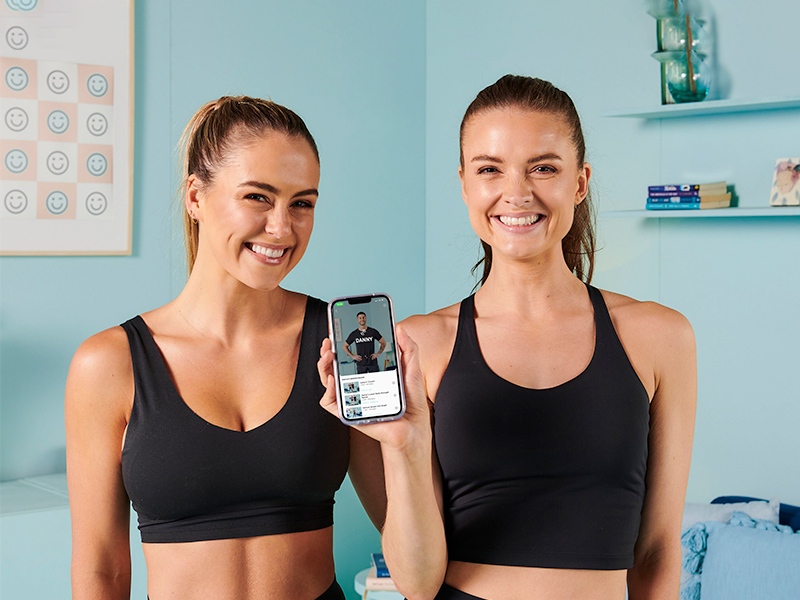Steph Claire Smith and Laura Henshaw: How to unlearn hating your body
The duo behind the Keep It Cleaner health and wellness app, Steph Claire Smith and Laura Henshaw, share how to love and respect the body you’re in.
Steph’s story
“I read a quote that really resonated with me: ‘It’s not learning how to love your body; it’s unlearning how to hate it.’
The reason I love this quote so much is that it gets to something really important: nobody is born hating their body.
Those negative habits and thought patterns are learned.
Unfortunately, there will probably always be underlying pressure to look a certain way.
Throughout history, there has always been an “ideal body type”.
That ideal has changed wildly to fit whatever values and standards society happened to celebrate during each particular era.
Shouldn’t this tell us that all bodies are beautifully unique?
If your body type doesn’t happen to be trending this year, so what? Why should you hate it?
No matter what you do, you can’t possibly look like someone with a totally different body shape, so why put yourself through the crappy journey of trying to?
As much as I understand the temptation to chase a body trend, I also understand when someone says they’re just trying to look the way they used to, because that was me.
Growing up, I was super sporty and a little lean bean.
I had visible abs from the time I was 10.
And although “abs” are commonly depicted as ideal (in this era, at least), as a teenager I didn’t really like my stomach.
I envied my schoolmates with curves and felt like my muscular body was “boyish”.
Boys often bullied me for being flat-chested.
I wouldn’t say I truly struggled with my body image, because this didn’t change the way I looked at exercise or food at the time, but that soon changed.
I started modelling full time when I was 18.
At that point, I was an Australian size eight and had a very balanced view of exercise and dieting.
I moved to the United States for a little while when I was 20 years old, and between the age of 18 and 20, I suppose you could say I developed a more adult-like figure.
When reps from the US modelling agencies would measure me, they’d comment about how my measurements had increased since they signed me a year earlier.
Being the young, driven model I was, I was determined to try and change that.
They took my profile off their website and told me I would go back on when I lost weight.
Only after that would they be proud to send me to castings and let me represent their agency.
Prior to this experience, exercise had been something I did because I enjoyed it — something I did to stay healthy.
But after hearing the ultimatum from the agents, I felt I had to get my measurements back down to where they were when I was a teenager.
Exercise became a task, an obsession — something I had to force myself to do.
I looked at food differently, too.
I picked up binge-eating patterns and became overly careful about what I put into my body.
Restricting foods that I loved became my new normal.
Instead, I’d binge on whatever food I’d allow myself to eat right up until the point of feeling sick (sometimes even making myself sick).
It was a horrible pattern and a horrible time.
I was constantly thinking about food; I’d start planning what to eat for dinner while I was still having my breakfast (maybe even my second serving of breakfast).
Eventually, I did lose the inches my agency had asked for, only to hear that I still didn’t have quite the right measurements.
I was encouraged to keep going with my weight loss.
You’d think I would have been happy to reach those goal measurements, right? But I wasn’t.
I was more insecure in my body than ever because now all I could see were my “flaws”.
Flaws that I had learned to see — had been taught to see.
To cut a long story short, it took coming home and surrounding myself with people who loved me for me, and not for my measurements, to “unlearn” these horrible patterns of hateful self-talk and binge eating.
It didn’t happen overnight, either.
Once learned, these negative lessons can be hard to shake.
To this day, those old habits can creep up on me when I’m in a state of vulnerability.
I’m just quicker at squashing them now.
No matter who you are, you’ve probably had or may still have insecurities about the way you look.
That’s normal. You don’t have to love everything about yourself. Who does?
But with work, you can change a negative narrative and learn to be kinder to yourself.
There’s a common saying: “Treat yourself as you would treat a good friend.”
And I think this is such an important message — in general, but especially when it comes to body positivity.
Think about someone you love; you don’t love them because of their looks, just as you don’t hate them for the “flaws” they see in themselves.
That’s not how relationships work, and it’s not how our own relationship with our body should work, either.
To me, being body positive doesn’t necessarily mean accepting or learning to love my flaws; it means appreciating my body for what it’s capable of and celebrating everything I do love about myself.”
Steph and Laura’s tips for learning to love your body
Stand in front of a mirror.
Let insecurities come up if they do, but be quick to counteract them with some kinder words.
Tell yourself three things you’re grateful for in your physical body.
It could be as simple as saying you like your hair, your smile or that your arms allow you to carry your baby around.
Once you start looking for things you do like, you’ll see there’s plenty to be grateful for.
Sometimes, it just takes removing the noise and pressure of society to find them.

Steph and Laura’s 6 body-loving mantras
You are not your body
Your body is a part of you, but it’s absolutely not the whole of you.
Your worth has nothing to do with your body
Write down what truly matters to you and what you want to do with your life. We can guarantee you it will have nothing to do with your body.
No one will stand up at your funeral and talk about your abs or thigh gap
And if you think they might, please make new friends now so by the time you are 100 you can be remembered for something that actually matters.
Weight doesn’t dictate happiness
It’s time to stop weighing yourself — especially if you have a history of disordered eating, excessive exercising or any weight-related patterns that are unhealthy for your mind and/or your body.
Eat well, move often, rest and look after your mind, not because of the number on your scales but because you want to look after yourself and feel good.
That number rarely represents how healthy you are.
If the scales don’t serve you, get rid of them.
You don’t need to fit into those old jeans.
You know the ones. The pair that make you feel bad about yourself every time you see them in your cupboard.
The sooner you throw those jeans out, the sooner you will stop telling yourself you are not good enough as you are now.
You are enough.
You do not need to “love” every part of your body — or any part of it, to be completely honest
We often confuse respect with love, but they are two very different things.
There is a lot of privilege that comes with being able to love many parts of your body.
If you are born into a body that fits the mould that society and the media deem “the ideal”, then by default it is easier to love your body.
The pressure to look in the mirror and scream, “OMG, I love my legs, my butt and my stomach!” can be too much.
A far more realistic approach is to look in the mirror and focus on the many incredible things your body does for you.
 |
Edited extract from You Take Care by Laura Henshaw and Steph Claire Smith, photography by Keep it Cleaner 2023, by Marten Ascenzo. Murdoch Books RRP $36.99. |






